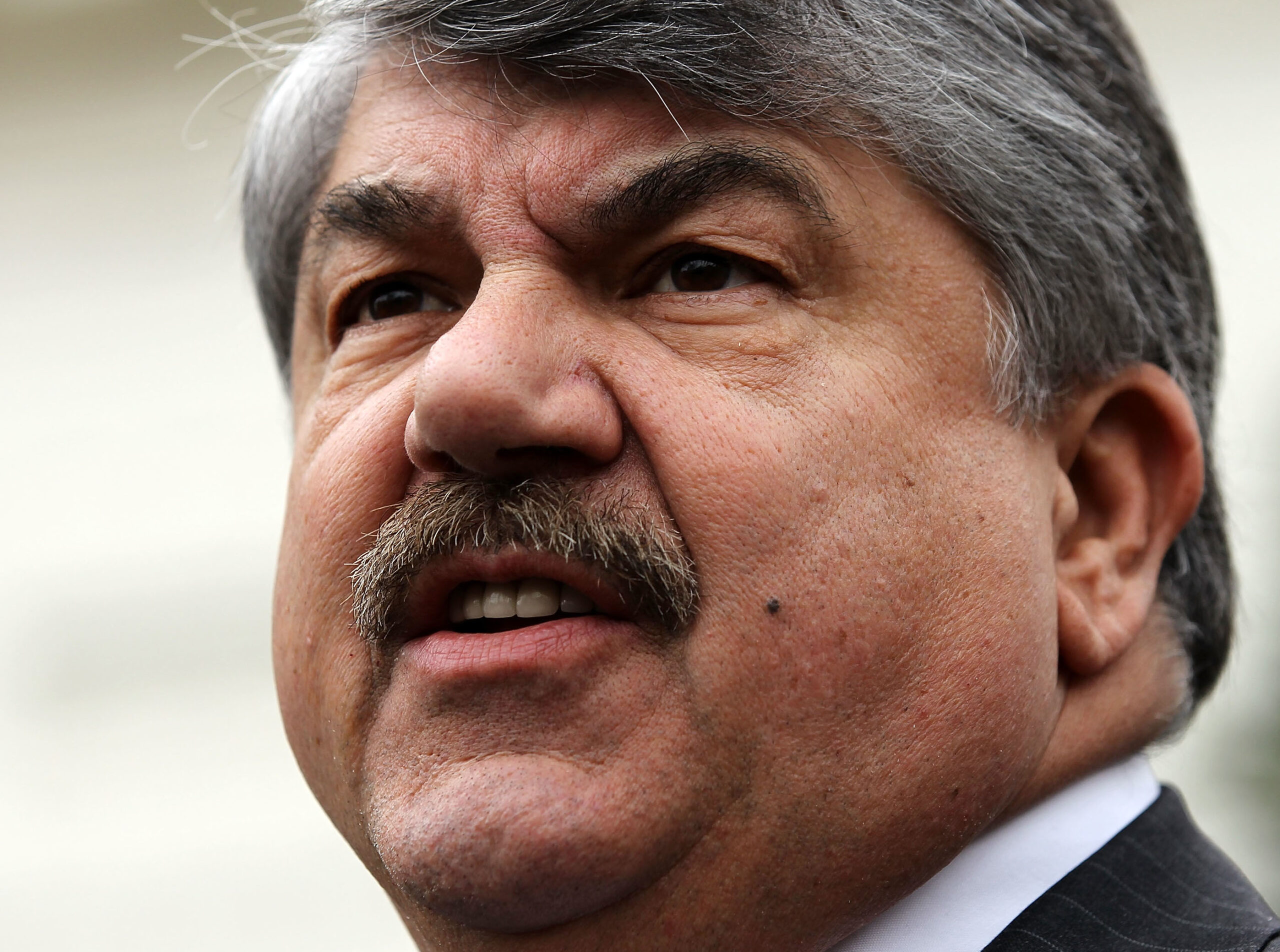The head of the largest confederation of labor unions this week acknowledged that Big Labor, representing more than 12 million workers in the U.S., has not always supported men and women of color. AFL-CIO president Richard Trumka, addressing the Missouri AFL-CIO convention this Monday focused heavily on race in America and on racism within union ranks. "How can we not be involved?" he asked of the killing of Michael Brown and its aftermath. One recent survey has exposed deep racial division over officer Darren Wilson’s fatal shooting of the unarmed 18-year-old. Trumka threaded a fine line indicative of a central tension engulfing Big Labor today: its dwindling white male membership and growing dependence on people of color to replenish the ranks. Both Wilson and Brown belong to union families:
"Union members’ lives have been profoundly damaged in ways that cannot be fixed. Lesley McSpadden, Michael Brown’s mother who works in a grocery store, is our sister, an AFL-CIO union member and Darren Wilson, the officer who killed Michael Brown, is a union member too and he is our brother. Our brother killed our sister’s son and we do not have to wait for the judgment of prosecutors or courts to tell us how terrible this is. So I say again, how can we not be involved?"
Trumka goes on to demand among other things, an open discussion of racism in America and that labor take responsibility for the past.
Here in St. Louis, in 1917, powerful corporations replaced white strikers with African American workers recruited from the Mississippi Delta with offers of wages far higher than anyone could make sharecropping. In response the St. Louis labor movment helped lead a blood bath against the African American community in East St. Louis. No one knows how many men, women and children were killed, and how many houses and businesses were burned….
We as a movement have not always done our best to support our brothers and sisters of color who face challenges both on and off the job–challenges that you don’t really understand unless you live them."
Listen to the full speech above or read it here.
(h/t MSNBC)
